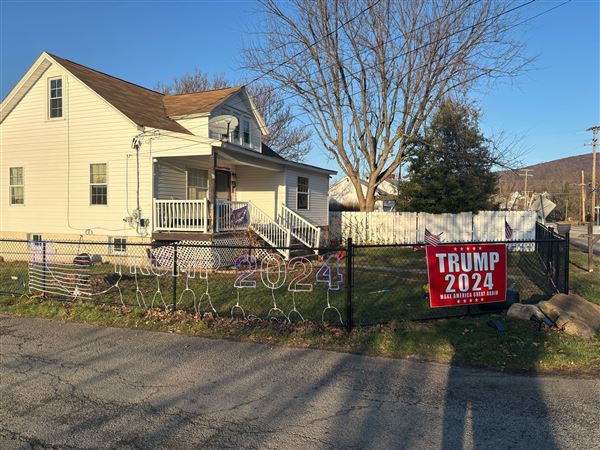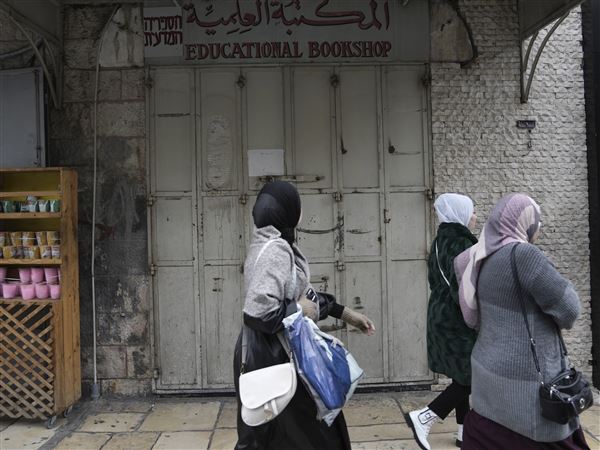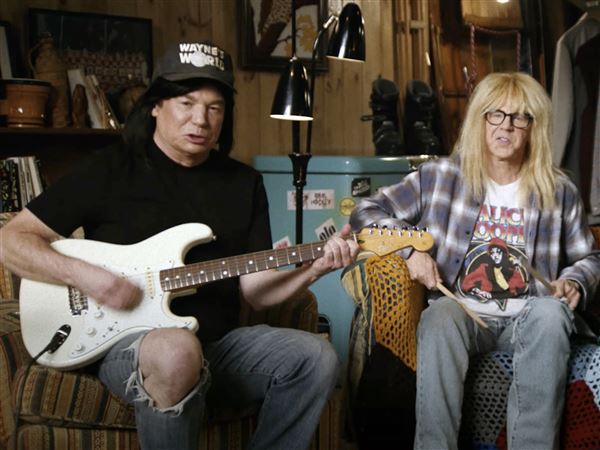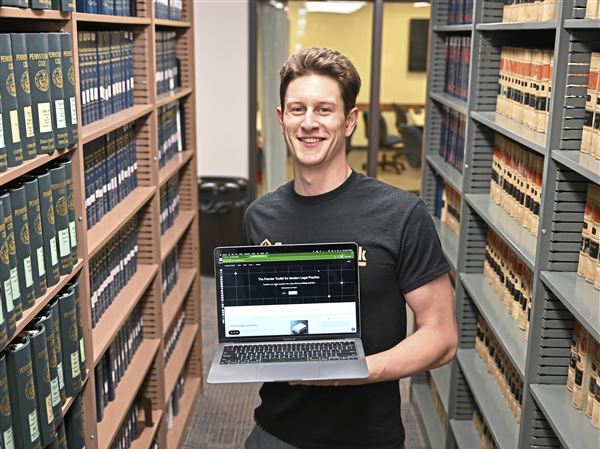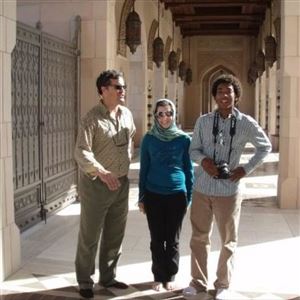Melissa Norfleet is young, gifted and black.

Simon Baker as Brian and Sanaa Lathan as Kenya in "Something New," a movie that centers on the decision of a black woman to date a white man.
Click photo for larger image.
Live Web chat
Join Post-Gazette staff writer L.A. Johnson for an online chat about the race and relationship issues explored in this story Friday from noon to 1. You can log in to post questions as early as 11:30.
In her third year at the University of Pittsburgh law school, she's looking forward to graduation in May. She also would like to start laying the foundation for the part of her life that will take place outside the law office.
"Everybody is engaged at this point in law school when you're about to graduate," says Ms. Norfleet, 25, of Oakland.
She doesn't want to be young, gifted and black -- and alone. She'd like to meet a great guy with whom she can eventually settle down, and she'd like that man to be black. She is uncomfortable dating outside of her race.
"My preference is black men, not that I've not seen white gentlemen that I'm attracted to," says Ms. Norfleet, who plans to go into international business, human rights or real estate law. "It takes a lot more for a black female to date outside of her race, and I feel that it's less accepted."
A 2000 statistic in a newspaper article that 42.4 percent of black women have never been married inspired the filmmakers behind "Something New," a romantic comedy that explores a professionally successful black woman's issues-fraught decision to date a white man. The film, currently in theaters, stars Sanaa Lathan and Simon Baker.
"I know a lot of fabulous, sharp, professional women that are still single and I thought, 'This is a movie,' " the film's screenwriter Kriss Turner says in the movie's press materials.
"When you get to your late 30s and you're still single, the thing that comes up -- especially among black women professionals -- is, are you going to go outside your race?" Ms. Turner says. "If you want to find love and get married, you are probably going to have to open it up and think outside the box."
In 2004, the percentage of never-married black women 16 and older was 42.3 percent compared with 22.7 percent of white women, according to the Joint Center for Political and Economic Studies in Washington, D.C.
Between 1950 and 2004, the percentage of never-married black women more than doubled, increasing from 20.7 to 42.3. During that same period, the percentage of never-married white women increased from 19.9 to 22.7.
"In a nutshell, the real crisis facing black women is too few men with too few resources," says Dr. Larry E. Davis, author of "Black and Single" and dean of the School of Social Work and director of the Center on Race and Social Problems at the University of Pittsburgh. "The education and professional advancements of black men have paled in comparison to those of black women. Two-thirds of all college degrees that go to black Americans go to black women."
If a white man were to ask Ms. Norfleet out, she's not sure she'd give him a fair hearing.
"I'm paranoid," she says. "I'd be thinking, 'Why are you dating a black girl and will your parents be OK with this and what about our kids?'
"I've had my share of drama with black men, but it's drama I understand," she says.
Many of the black women she knows who are single, are single almost by choice.
"They don't want to settle or they don't want to date outside of their race," she says.
Pressure from all sides
Lorenda Layne is biracial, grew up in predominantly white Plum, now lives in Greenfield and always has been open to dating men of all races.
"All the black people in my high school were girls," says Ms. Layne, 26, a Pitt biology major and Allegheny General Hospital research assistant. "None of us really dated in high school and if we did, it was somebody [black] who came from somewhere else."
She didn't meet lots of black guys growing up, in high school or in college. In high school, the white guys weren't interested.
"It's hard to find somebody [of any race] you can tolerate on a daily basis," she says.
The first guy she ever dated was black. She was 18 and he was 27. They had a fine relationship. It just didn't last.
"Every other black guy that I've known and been interested in already has been dating somebody else," she says.
Today, she's engaged to marry a white man she met in an Episcopal church although they're both Baptist.
"He'll tell you he never expected to marry a black girl, but he's fine with it now," she says.
His parents are OK with it, too, she says, although his grandmother may not attend the wedding.
"When his grandmother saw a photograph of me, she said, 'Has he considered eHarmony.com?' "
Family, friends and even perfect strangers can be extremely critical of someone's decision to love across the racial divide.
Ms. Layne's black cousins used to tease her about dating white guys.
The parents of a white, male high school friend of hers transferred their son to a college across country after he expressed interest in dating her, she says. She had been friends with him for years and a frequent dinner guest in his home. She was surprised and very hurt to learn his parents didn't want him dating her.
An older black lady once approached her in a Giant Eagle after seeing her with an ex-boyfriend, who was white.
"You can't trust him," the older lady told her.
"I think she thought she had my best interest in mind," Ms. Layne says. "I understand why she feels that and even I have had problems with trusting because of the experience with my friend from high school."
There's unspoken pressure on both sides.
"For men, when they're with white women, it's the white women who get a lot of 'Why can't you stick with your own kind? There aren't very many good black men out there. Why do you have to take one of ours?' " Ms. Layne says.
Different views of society
"Black men get mad when they see a sister with a white guy, but they don't have a problem dating white women," says coke plant worker Audrey Massey, 49, of Clairton.
Ms. Massey opposes interracial dating. She came of age during the James Brown era, she says, when the slogan was "Say it loud, I'm black and I'm proud."
"To me, when people [interracial date], it's low self-esteem," she says. "I think it's a self-hatred thing. ... Black people should be together and build on that."
Black pride has eroded among younger generations and black people with dark complexions could be bred out of existence, Ms. Massey says.
Rasheda Davis, 33, of Garfield, thinks there's still a double standard regarding society's view of black women and black men dating people of other races.
When she and her Lebanese boyfriend of six years go out together with their two children, they receive a lot of strange looks from people.
"When my brother goes out with his girlfriend, and she's white, nobody says anything," she says.
Ms. Davis believes society is more accepting of seeing black men with white women. "It's more common," she says.
Ms. Norfleet wonders how many white men really are open to dating black women.
"I don't know how many Robert De Niro's are out there, but I think the number is small."
In 2002, there were 279,000 white female-black male marriages compared with 116,000 black female-white male marriages, according to the U.S. Census Bureau.
Shaunta Wright, 27, of the North Side, never has dated outside of her race, but she's willing to consider it.
"I'm tired of African-American men," says Wright, who works in the Point Park University registrar's office. "It just seems other races have more respect for their women."
Ms. Wright has almost given up on finding Mr. Right in Pittsburgh. When she goes out for drinks with her girlfriends after work, they spend time bemoaning this fact, not unlike the four female friends in the movie.
"Seems like the Pittsburgh black women are advancing past the Pittsburgh black men, who are either in jail or dead," she says. "I don't even have a child. I haven't had a steady boyfriend in four years. I've been dating and it never works out."
And it's not that she ever has been opposed to dating someone outside her race. She's never been asked out by someone outside her race.
Interracial couples aren't as common in Pittsburgh as in some other places, she says.
"I notice that when I do go out of town, I get a lot of attention, but when I come back home to Pittsburgh, the guys feel like they would have to do too much or work too hard -- like actually have a job and treat me like a lady," Ms. Wright says.
Moving to meet black men
Ms. Norfleet, the law student, says she has friends, like Sanaa Lathan's character in the film, who have a checklist of the qualities they want their Mr. Right to possess. However, she says her IBM -- Ideal Black Man -- doesn't have to be a doctor, lawyer or other professional.
"If I'm dating a man who isn't as educated as me, that's fine, but I want him to be comfortable in his skin," she says.
She remembers a black guy she dated her first year in law school.
"He wasn't in school, but he was good to me and then he ended up cheating on me," she says. "He just didn't think I really wanted to be with him. He would always say to me, 'Why do you want to be with me?'"
She also wants a black man who can be supportive of her aspirations. "If I want to get a job that pays twice as much as yours or get another degree, is that all right with you?"
Sometimes women are willing to settle for a black man instead of the right black man, she says, because the pickings are slim.
For example, there are only a few black men in her law school class.
"One is married. One is with a long-term girlfriend. One was single but now has a girlfriend and the other is crazy," she says.
Ms. Norfleet isn't dating anyone right now, just planning to graduate and move to Atlanta, which has a much larger black population.
Rochelle Edwards has been married 30 years to a black man and recalls when she was younger and just dating, that white men didn't appeal to her. However, her views have changed over the years.
"I've come across some Caucasian men that, if I wasn't married, I'd probably take a second look at," says Ms. Edwards, 48, of Homestead. "When I was younger, I was looking for someone like me."
As the product of an interracial marriage, she was apprehensive about being involved in an interracial relationship because she didn't want her own children to face the difficulties she did as a child. People always wondered whether she was black or white because she was so fair.
She experienced name calling from both races as a child with blacks calling her a wannabe and whites calling her mulatto or half-breed, she says.
When she was younger, she definitely wanted to marry someone black and even avoided dating light-skinned black guys.
"Now that I'm older, if I were to date, as I tell my children, I'd look at things differently," she says.
When Elaine Lee was a girl, it was unfathomable for a black woman to even think of dating let alone marrying outside her race, but she is happy that she's seen change in her 70 years.
"I, for one, have accepted the foolhardiness of allowing color to play a role in the choosing of a mate," says Ms. Lee of Homewood. "Permit common sense a place in relationship decision-making and I believe future generations will be less racist, more tolerant and accepting, with young black women finding partners who love, care and respect them -- all that is necessary to a happy union/fulfilling life -- not his color!"
First Published: February 22, 2006, 5:00 a.m.

